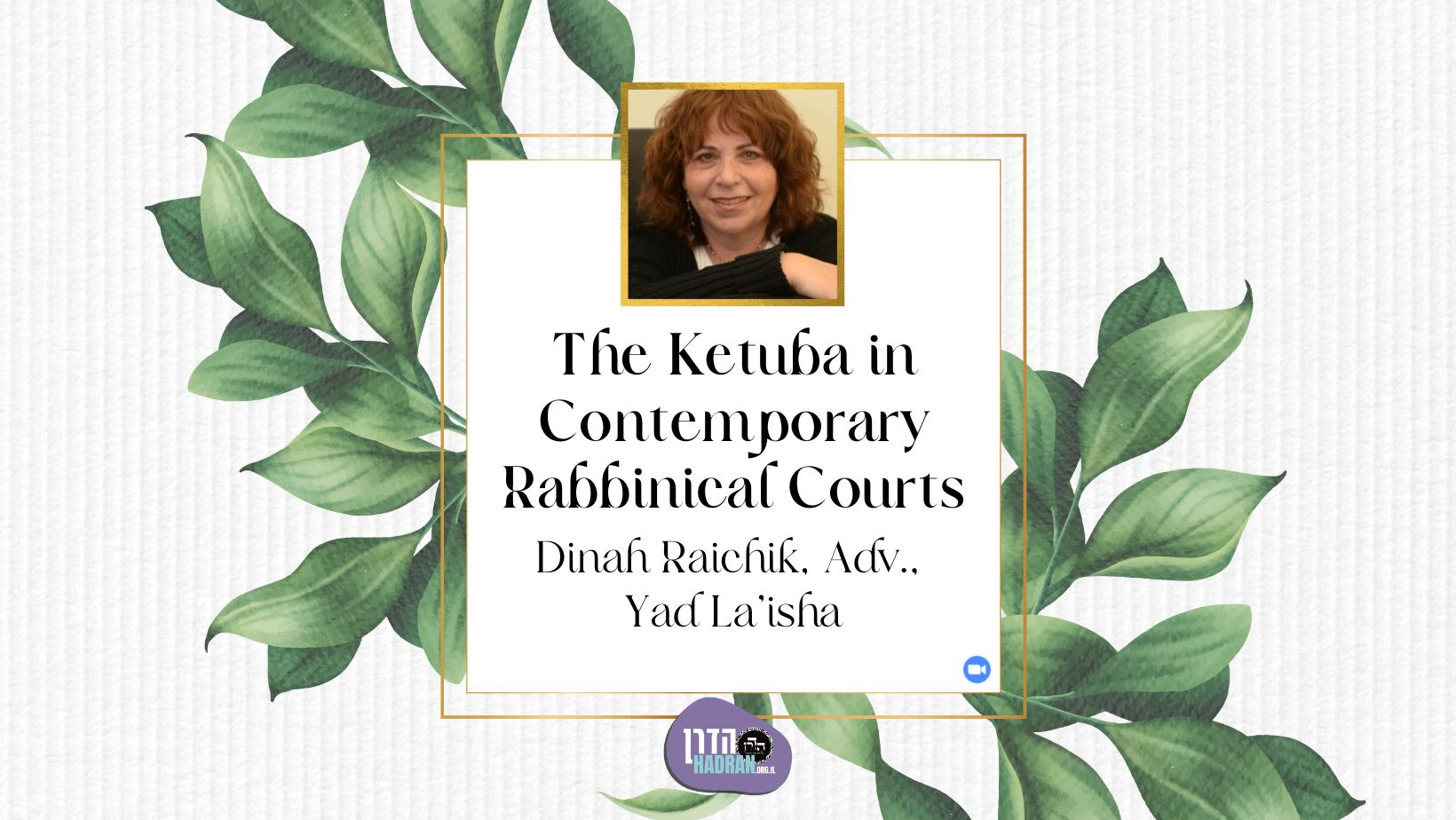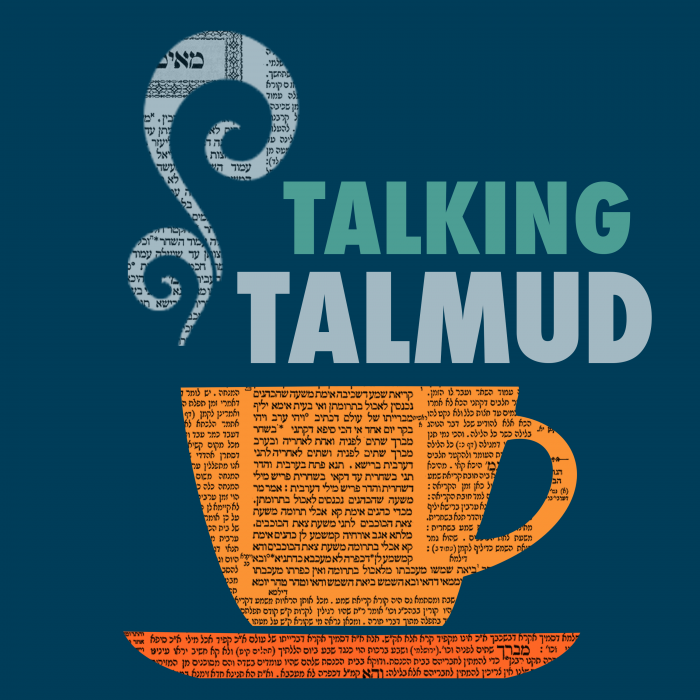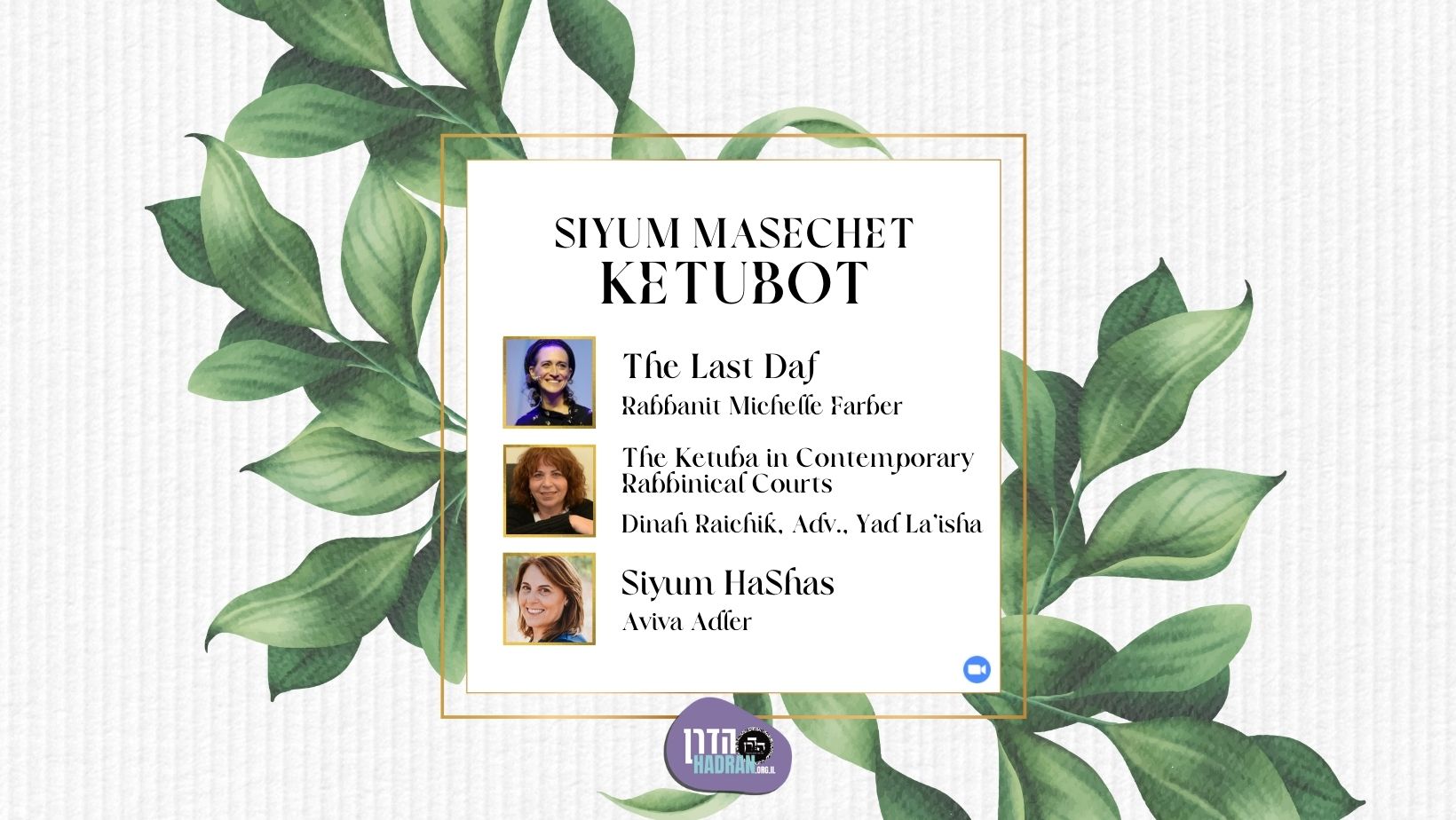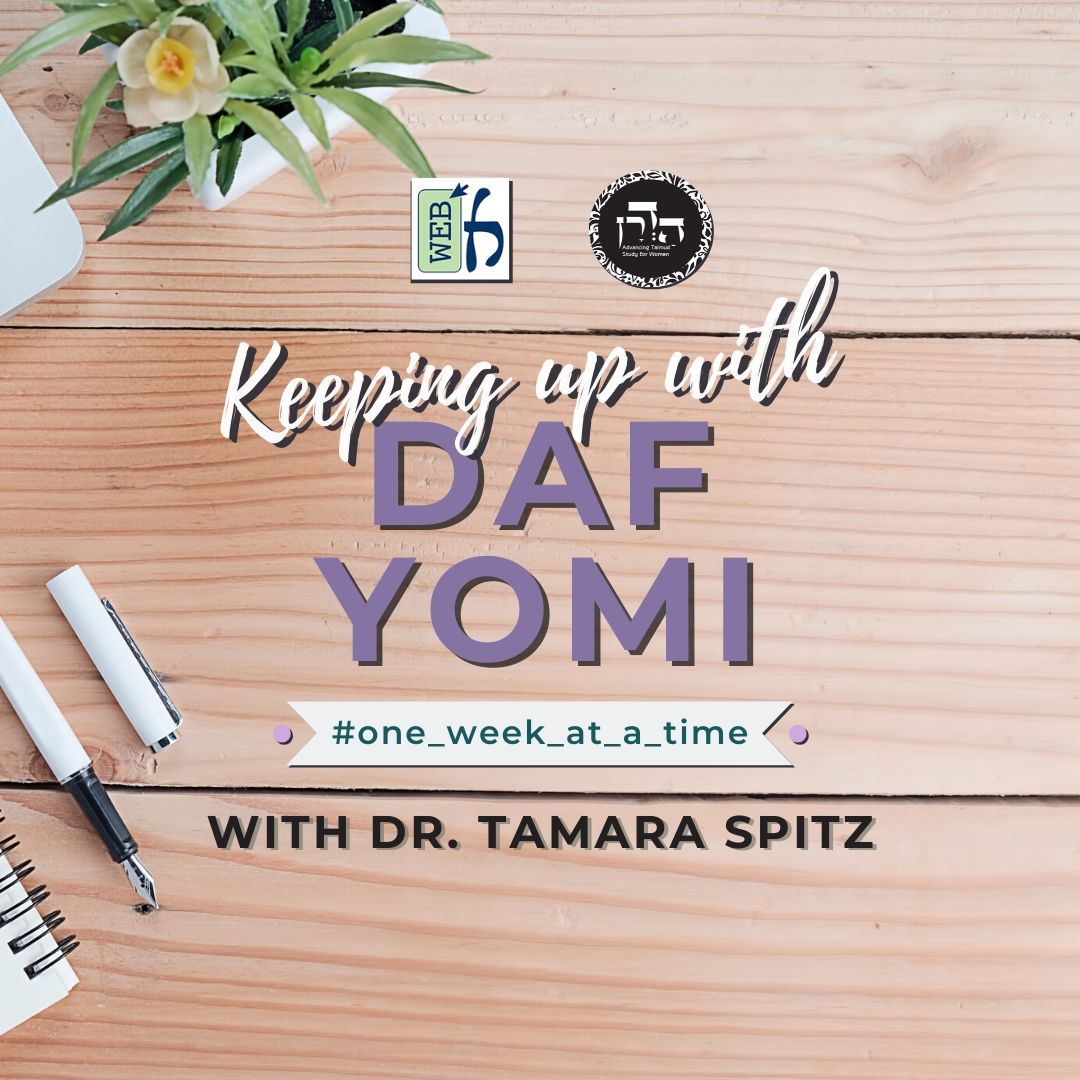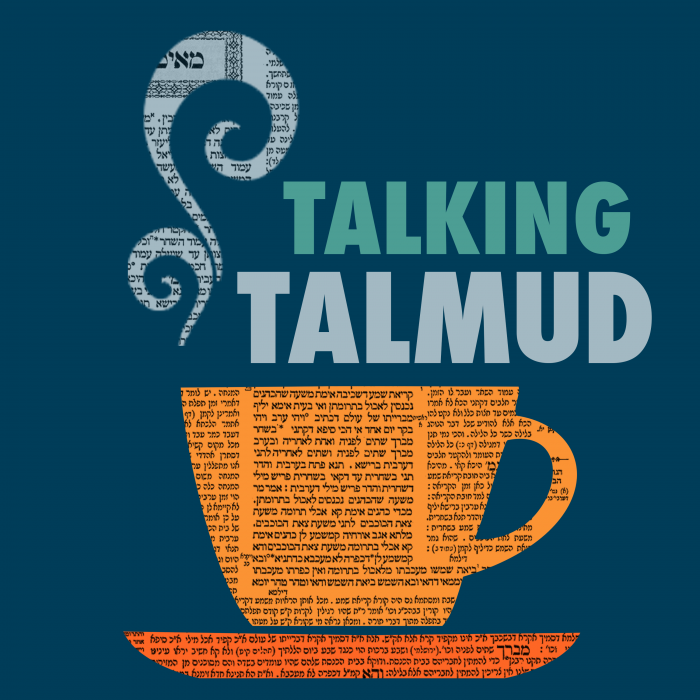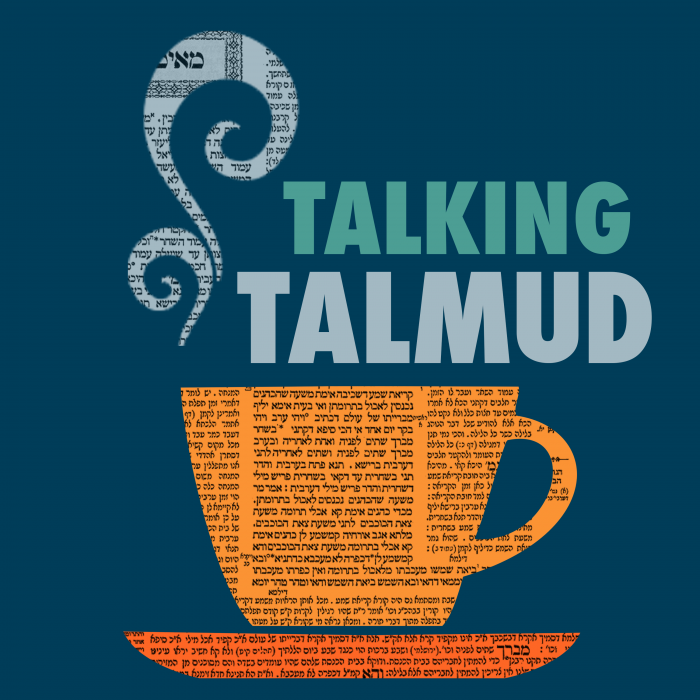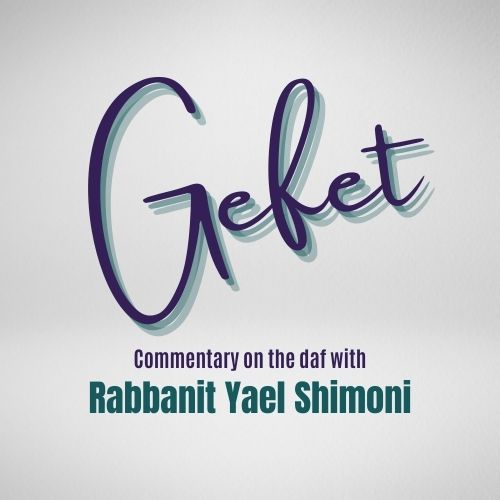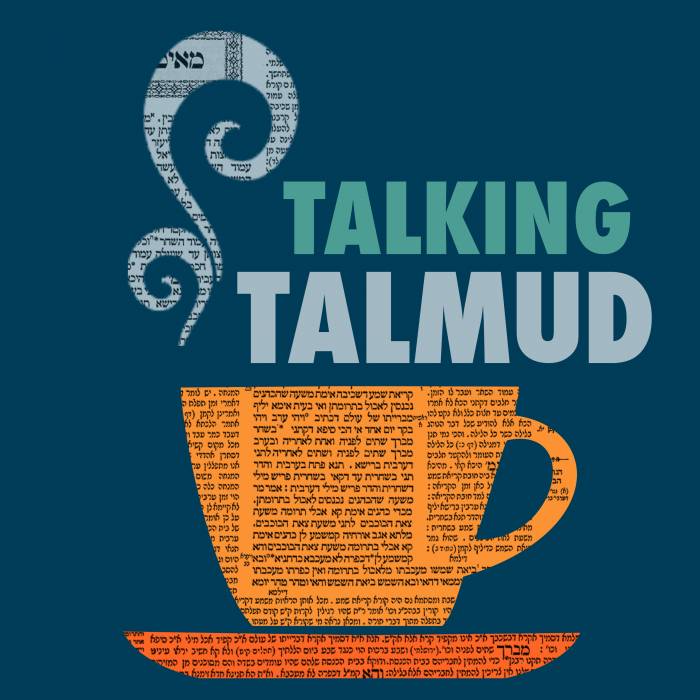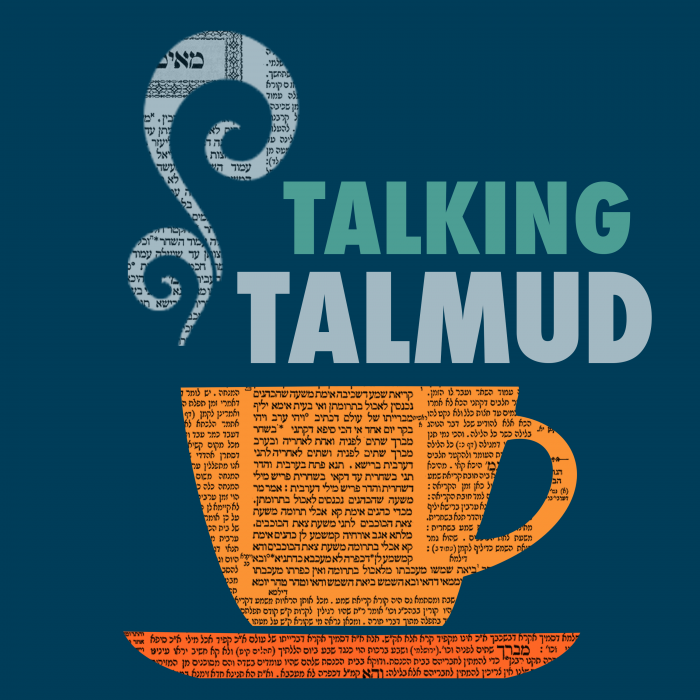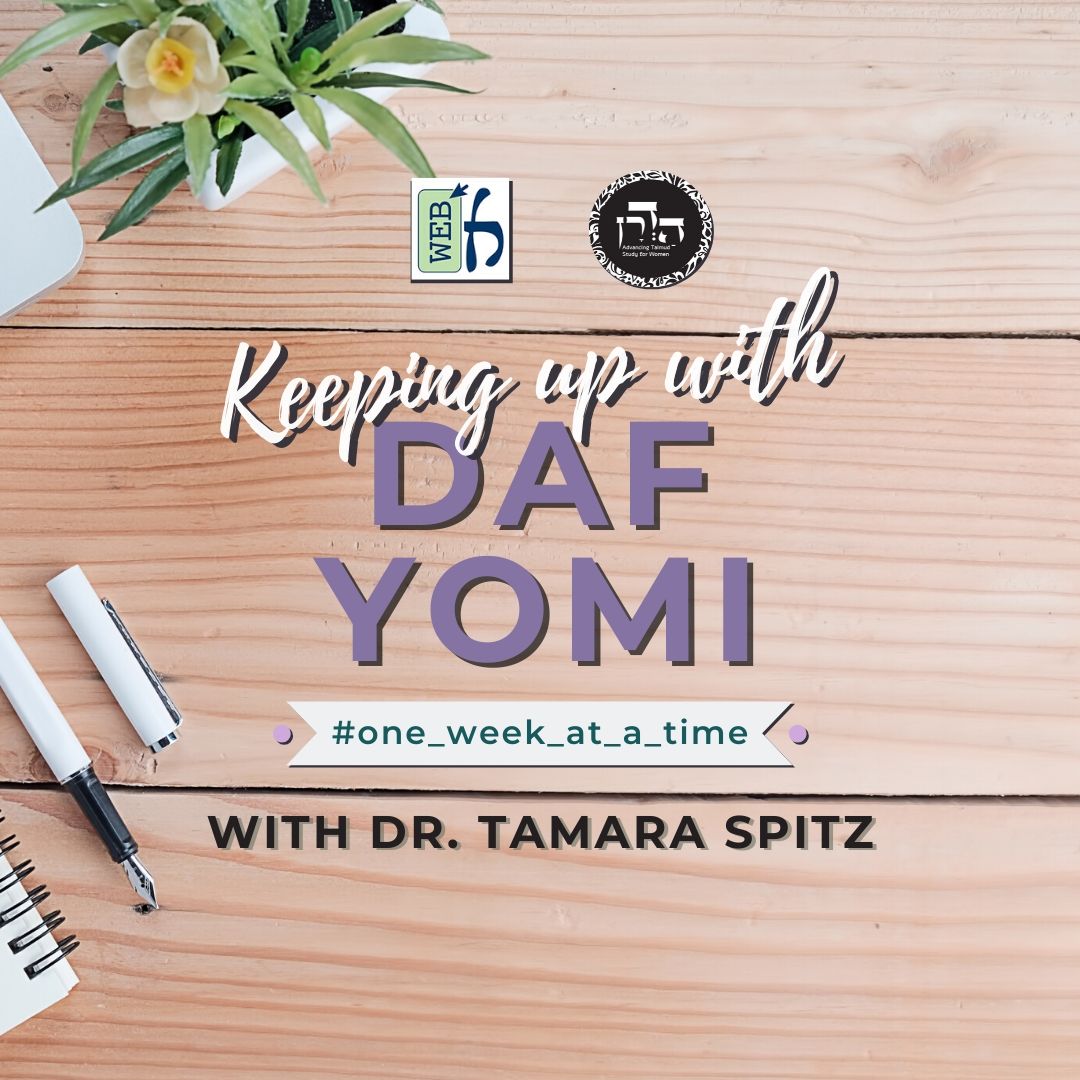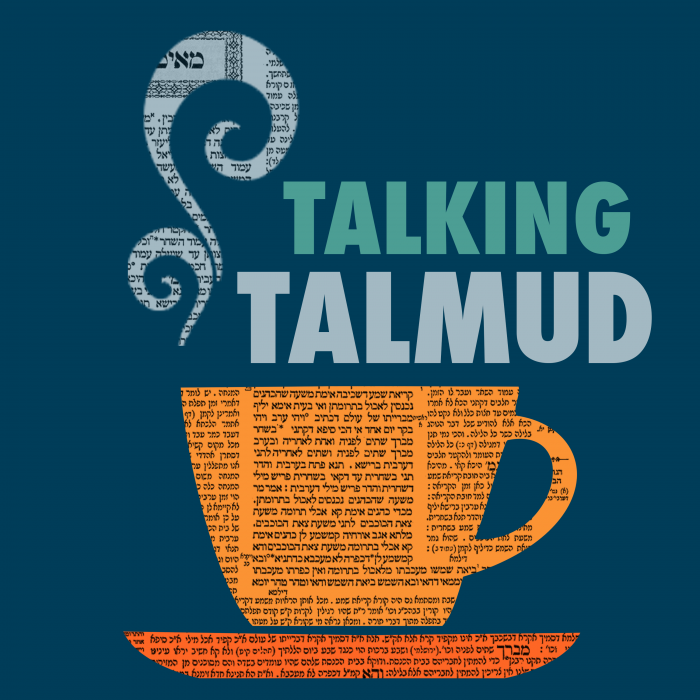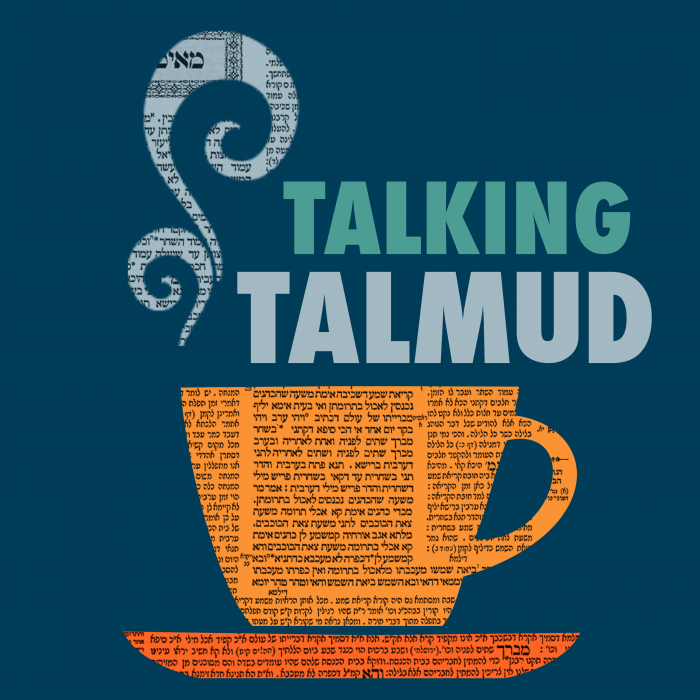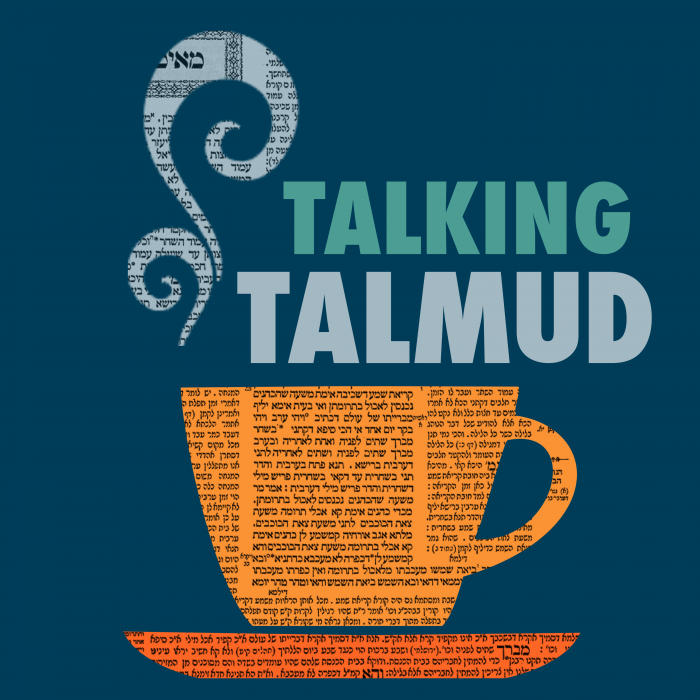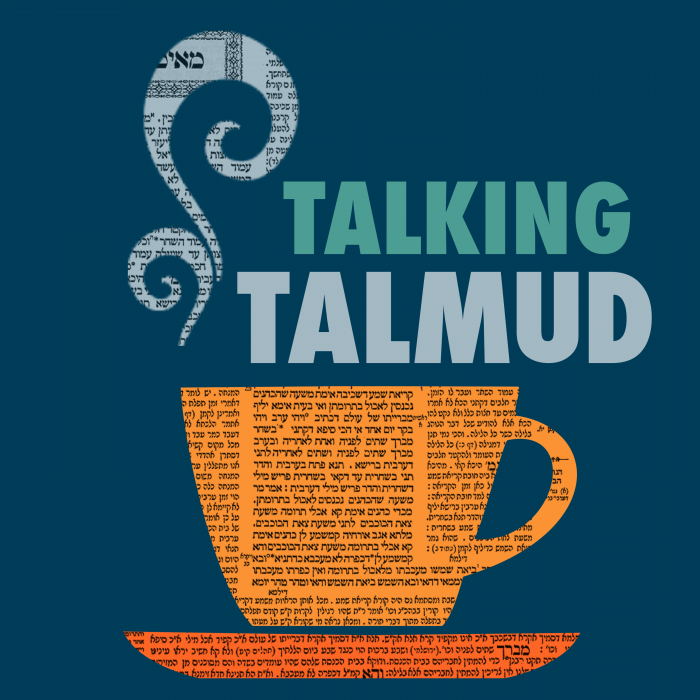Ketubot 46
רַב פָּפָּא אָמַר: מַאי ״בָּעַל לוֹקֶה״ דְּקָתָנֵי הָתָם — מָמוֹן. וְקָרֵי לֵיהּ לְמָמוֹן מַלְקוֹת? אִין, וְהָא תְּנַן: ״הָאוֹמֵר חֲצִי עֶרְכִּי עָלַי״ — נוֹתֵן חֲצִי עֶרְכּוֹ. רַבִּי יוֹסֵי בְּרַבִּי יְהוּדָה אוֹמֵר: לוֹקֶה וְנוֹתֵן עֵרֶךְ שָׁלֵם. לוֹקֶה אַמַּאי? אָמַר רַב פָּפָּא: לוֹקֶה בְּעֵרֶךְ שָׁלֵם.
Rav Pappa said: What of the statement that is taught there, in the baraita, that it is only if he had intercourse with her that he is flogged? It is referring to the money of the fine. The Gemara asks: And does one call monetary payment flogging? The Gemara answers: Yes, and we learned in a baraita: One who says: Half my valuation is upon me, he gives half his valuation, in accordance with the sum fixed by the Torah according to sex and age (see Leviticus 27:2–3). Rabbi Yosei, son of Rabbi Yehuda, says: He is flogged and gives his full valuation. The Sages inquired: Why is he flogged? What transgression did he commit? Rav Pappa said: He is flogged by having to pay a full valuation. This proves that monetary payment can be referred to as flogging.
מַאי טַעְמָא — גְּזֵירָה ״חֲצִי עֶרְכּוֹ״ אַטּוּ ״עֵרֶךְ חֶצְיוֹ״. וְ״עֵרֶךְ חֶצְיוֹ״ הָוֵי לֵיהּ אֵבֶר שֶׁהַנְּשָׁמָה תְּלוּיָה בּוֹ.
The Gemara clarifies: What is the reason of Rabbi Yosei, son of Rabbi Yehuda? It is a rabbinic decree in the case of one who vows to donate half of his valuation, due to a case where one vowed the valuation of half of himself. And one who vows to donate the valuation of half of himself has effectively vowed to donate the valuation of a limb upon which his life depends, e.g., his head or heart, in which case it is as though he vowed to donate his entire valuation. Consequently, even one who vows to donate half of his valuation must donate his entire valuation.
תָּנוּ רַבָּנַן: ״וְעָנְשׁוּ אוֹתוֹ״ — זֶה מָמוֹן, ״וְיִסְּרוּ״ — זֶה מַלְקוֹת.
§ The Gemara continues to discuss the halakhot of the defamer. The Sages taught the following baraita, based upon the following verses: “And the Elders of that city shall take the man and chastise him. And they shall fine him a hundred shekels of silver, and give them to the father of the young woman” (Deuteronomy 22:18–19). “And they shall fine [ve’anshu] him”; this is referring to money. “And chastise him”; this is referring to flogging.
בִּשְׁלָמָא ״וְעָנְשׁוּ״ זֶה מָמוֹן, דִּכְתִיב ״וְעָנְשׁוּ אוֹתוֹ מֵאָה כֶסֶף וְנָתְנוּ לַאֲבִי הַנַּעֲרָה״. אֶלָּא ״וְיִסְּרוּ״ זֶה מַלְקוֹת — מְנָלַן?
The Gemara asks: Granted, with regard to the phrase “and they fine [ve’anshu] him,” although the word ve’anshu can refer to any punishment, in this case it is referring to money, as it is written: And they shall fine him a hundred shekels of silver, and give them to the father of the young woman. However, with regard to the statement of the baraita that: “And chastise him”; this is referring to flogging, from where do we derive this?
אָמַר רַבִּי אֲבָהוּ: לָמַדְנוּ ״יִסְּרוּ״ מִ״יִּסְּרוּ״, וְ״יִסְּרוּ״ מִ״בֵּן״, וּ״בֵן״ מִ״בִּן״ — ״וְהָיָה אִם בִּן הַכּוֹת הָרָשָׁע״.
Rabbi Abbahu said: We learned the meaning of the word chastise in the case of a defamer by verbal analogy from the word chastise stated in the verse “if a man have a stubborn and rebellious son [ben], that will not listen to the voice of his father or the voice of his mother, and though they chastise him, will not listen to them” (Deuteronomy 21:18). And the implication of the word chastise in that verse is derived from the word son that appears in the same verse. And the implication of the word son [ben] with regard to a rebellious son is derived from the word bin in the verse “Then it shall be if the wicked man deserve [bin] to be flogged” (Deuteronomy 25:2).
אַזְהָרָה לְמוֹצִיא שֵׁם רַע מְנָלַן? רַבִּי אֶלְעָזָר אָמַר: מִ״לֹּא תֵלֵךְ רָכִיל״. רַבִּי נָתָן אוֹמֵר: מִ״וְּנִשְׁמַרְתָּ מִכֹּל דָּבָר רָע״.
The Gemara asks: From where do we derive the warning, i.e., the prohibition that serves as the source for the flogging for a defamer? Rabbi Elazar says that the prohibition is derived from the verse “You shall not go up and down as talebearer” (Leviticus 19:16). Rabbi Natan says that it is derived from: “Then you shall keep yourself from every evil thing [davar ra]” (Deuteronomy 23:10), which is expounded to mean dibbur ra, evil speech.
וְרַבִּי אֶלְעָזָר מַאי טַעְמָא לָא אָמַר מֵהַאי? הָהוּא מִיבְּעֵי לֵיהּ לְכִדְרַבִּי פִּנְחָס בֶּן יָאִיר. ״וְנִשְׁמַרְתָּ מִכֹּל דָּבָר רָע״, מִכָּאן אָמַר רַבִּי פִּנְחָס בֶּן יָאִיר: אַל יְהַרְהֵר אָדָם בַּיּוֹם וְיָבֹא לִידֵי טוּמְאָה בַּלַּיְלָה.
The Gemara asks: And what is the reason that Rabbi Elazar did not state that it is derived from this verse quoted by Rabbi Natan? The Gemara answers: He requires that verse for the statement of Rabbi Pineḥas ben Yair, as it was taught: “Then you shall keep yourself from every evil thing”; from here Rabbi Pineḥas ben Yair said: A person should not think impure thoughts by day and thereby come by night to the impurity of an emission.
וְרַבִּי נָתָן מַאי טַעְמָא לָא אָמַר מֵהַאי? הָהוּא: אַזְהָרָה לְבֵית דִּין שֶׁלֹּא יְהֵא רַךְ לָזֶה וְקָשֶׁה לָזֶה.
The Gemara asks the reverse question: And what is the reason that Rabbi Natan did not state that it is derived from that verse cited by Rabbi Elazar? The Gemara answers: Rabbi Natan explains that verse, which includes the term talebearer [rakhil], as a warning to the court that it should not be soft to [rakh la] this litigant and harsh to that one, but it must treat both sides as equals.
לֹא אָמַר לְעֵדִים ״בּוֹאוּ וְהַעִידוּנִי״, וְהֵן מְעִידִים אוֹתוֹ מֵאֲלֵיהֶן — הוּא אֵינוֹ לוֹקֶה, וְאֵינוֹ נוֹתֵן מֵאָה סְלָעִים. הִיא וְזוֹמְמֶיהָ מַקְדִּימִין לְבֵית הַסְּקִילָה.
§ The Gemara cites another statement that deals with a defamer: If the husband did not say to witnesses: Come and testify for me that my wife committed adultery, but they testify for him of their own accord and are subsequently discovered to be liars, the husband is not flogged and does not give the one hundred sela, as he did not harm her. She and her conspiring witnesses are brought early to the place of stoning.
הִיא וְזוֹמְמֶיהָ סָלְקָא דַּעְתָּךְ?! אֶלָּא: אוֹ הִיא אוֹ זוֹמְמֶיהָ מַקְדִּימִין לְבֵית הַסְּקִילָה.
The Gemara asks: Does it enter your mind to say that she and her conspiring witnesses are stoned? If she is liable to be stoned, they are not conspiring witnesses, and conversely, if they are conspiring witnesses, they are stoned and she is exempt. Rather, this must mean: Either she or her conspiring witnesses are brought early to the place of stoning. If they were telling the truth, she is stoned. If they conspired and offered false testimony, they are liable to be stoned.
טַעְמָא דְּלָא אֲמַר לְהוּ, הָא אֲמַר לְהוּ, אַף עַל גַּב דְּלָא אַגְרִינְהוּ. לְאַפּוֹקֵי מִדְּרַבִּי יְהוּדָה. דְּתַנְיָא, רַבִּי יְהוּדָה אוֹמֵר: אֵינוֹ חַיָּיב עַד שֶׁיִּשְׂכּוֹר עֵדִים.
The Gemara infers from the baraita that the reason the husband is not flogged or fined is that the husband did not tell them to testify, but if he told them to testify, although he did not hire them but merely persuaded them to testify that his wife had committed adultery as a betrothed woman, he is flogged and must pay the fine. This serves to exclude the opinion of Rabbi Yehuda, as it is taught in a baraita that Rabbi Yehuda says: The husband is liable to the punishments of a defamer only if he hired witnesses.
מַאי טַעְמָא דְּרַבִּי יְהוּדָה? אָמַר רַבִּי אֲבָהוּ: אַתְיָא ״שִׂימָה״ ״שִׂימָה״. כְּתִיב הָכָא: ״וְשָׂם לָהּ עֲלִילוֹת דְּבָרִים״, וּכְתִיב הָתָם: ״לֹא תְשִׂימוּן עָלָיו נֶשֶׁךְ״, מָה לְהַלָּן מָמוֹן, אַף כָּאן מָמוֹן.
The Gemara asks: What is the reason of Rabbi Yehuda? Nowhere does the Torah explicitly state that the husband hired false witnesses. The Gemara answers that Rabbi Abbahu said: It is derived by a verbal analogy between the term placing, written with regard to a defamer, and the term placing, written with regard to the prohibition against charging interest. It is written here, with regard to a defamer: “And he place wanton charges against her” (Deuteronomy 22:14), and it is written there: “Neither shall you place upon him interest” (Exodus 22:24). Just as below, with regard to interest, the verse is referring to money, so too here, in the case of a defamer, it is referring to money, thereby indicating that the husband paid money in order to substantiate his false accusation.
אָמַר רַב נַחְמָן בַּר יִצְחָק, וְכֵן תָּנֵי רַב יוֹסֵף צִידוֹנִי בֵּי רַבִּי שִׁמְעוֹן בֶּן יוֹחַאי: אָתְיָא ״שִׂימָה״ ״שִׂימָה״.
Rav Naḥman bar Yitzḥak said: Rav Yosef Tzidoni likewise taught in the school of Rabbi Shimon ben Yoḥai: It is derived from the verbal analogy between the term placing, written with regard to a defamer, and the term placing, written with regard to the prohibition against charging interest.
בָּעֵי רַבִּי יִרְמְיָה: שְׂכָרָן בְּקַרְקַע, מַהוּ? בְּפָחוֹת מִשָּׁוֶה פְּרוּטָה, מַהוּ? שְׁנֵיהֶם בִּפְרוּטָה, מַהוּ?
Rabbi Yirmeya raised a dilemma: According to the opinion of Rabbi Yehuda, if the husband hired the false witnesses with land instead of money, what is the halakha? If he hired them with less than the value of a peruta, what is the halakha? If he hired both witnesses with a peruta, what is the halakha? Since this halakha is derived from the case of interest, perhaps, like the prohibition against charging interest, it applies only with regard to money, rather than land, and only with money that is greater than the value of a peruta.
בָּעֵי רַב אָשֵׁי: הוֹצִיא שֵׁם רַע עַל הַנִּישּׂוּאִין הָרִאשׁוֹנִים, מַהוּ? עַל נִשּׂוּאֵי אָחִיו, מַהוּ?
Similarly, Rav Ashi raised a dilemma concerning a defamer: If he defamed his wife with regard to their first marriage, what is the halakha? In other words, if a man married a woman, divorced her, remarried her, and subsequently defamed her by claiming that she had committed adultery during the period of betrothal before their first marriage, what is the halakha? Similarly, if he performed levirate marriage and then defamed her with regard to his brother’s marriage to her, what is the halakha?
פְּשׁוֹט מִיהָא חֲדָא. דְּתָנֵי רַבִּי יוֹנָה: ״אֶת בִּתִּי נָתַתִּי לָאִישׁ הַזֶּה״. לְזֶה — וְלֹא לַיָּבָם.
The Gemara comments: Resolve at least one of these dilemmas, as Rabbi Yona taught that the verse “And the father of the young woman shall say to the Elders: I gave my daughter to this man” (Deuteronomy 22:16) serves to emphasize: I gave her to this man and not to the yavam, i.e., the brother of the original husband. Consequently, if one defames his yevama with regard to her original marriage to his brother, the unique halakhot of defamation do not apply.
מַאי רַבָּנַן וּמַאי רַבִּי אֱלִיעֶזֶר בֶּן יַעֲקֹב? דְּתַנְיָא: כֵּיצַד הוֹצָאַת שֵׁם רַע? בָּא לְבֵית דִּין, וְאָמַר: פְּלוֹנִי, לֹא מָצָאתִי לְבִתְּךָ בְּתוּלִים. אִם יֵשׁ עֵדִים שֶׁזִּינְּתָה תַּחְתָּיו — יֵשׁ לָהּ כְּתוּבָּה מָנֶה.
§ In the course of the previous discussion, the Gemara mentioned a dispute between the Rabbis and Rabbi Eliezer ben Ya’akov. The Gemara asks: What is the opinion of the Rabbis and what is the opinion of Rabbi Eliezer ben Ya’akov, referred to above (45b)? As it is taught in a baraita: How does the case of defamation proceed? It involves a situation where the husband came to the court and said to the father: So-and-so, I have not found indications of your daughter’s virginity. If there are witnesses who testify that she committed adultery under his authority, i.e., while betrothed to him, she has a marriage contract of one hundred dinars.
אִם יֵשׁ עֵדִים שֶׁזִּינְּתָה תַּחְתָּיו יֵשׁ לָהּ כְּתוּבָּה מָנֶה?! בַּת סְקִילָה הִיא! הָכִי קָאָמַר: אִם יֵשׁ עֵדִים שֶׁזִּינְּתָה תַּחְתָּיו — בִּסְקִילָה. זִינְּתָה מֵעִיקָּרָא, יֵשׁ לָהּ כְּתוּבָּה מָנֶה.
The Gemara interrupts its citation of the baraita, as this last statement is very surprising: If there are witnesses who testify that she committed adultery under his authority, does she have a marriage contract of one hundred dinars? She is punished by stoning. The Gemara explains that this is what the tanna said: If there are witnesses who testify that she committed adultery under his authority, she is liable to receive the punishment of stoning. However, if she engaged in licentious sexual relations at the outset, before her betrothal, when she was still a single woman, she is merely guilty of deceiving her husband with regard to her virginity, and therefore she has a marriage contract of one hundred dinars, which is the standard marriage contract of a non-virgin.
נִמְצָא (שֶׁ)שֵּׁם רַע [שֶׁ]אֵינוֹ שֵׁם רַע — הוּא לוֹקֶה וְנוֹתֵן מֵאָה סֶלַע, בֵּין בָּעַל וּבֵין לֹא בָּעַל. רַבִּי אֱלִיעֶזֶר בֶּן יַעֲקֹב אוֹמֵר: לֹא נֶאֶמְרוּ דְּבָרִים הַלָּלוּ אֶלָּא כְּשֶׁבָּעַל. בִּשְׁלָמָא לְרַבִּי אֱלִיעֶזֶר בֶּן יַעֲקֹב, הַיְינוּ דִּכְתִיב: ״וּבָא אֵלֶיהָ״, ״וָאֶקְרַב אֵלֶיהָ״,
The Gemara resumes its quotation of the baraita: If it was discovered that the bad name is not a bad name, i.e., the husband’s accusation was false, he is flogged and gives her father one hundred sela, whether he had intercourse with her or whether he had not had intercourse with her. Rabbi Eliezer ben Ya’akov says: These matters were stated only in a case where he had intercourse with his wife before defaming her. The Gemara asks: Granted, according to the opinion of Rabbi Eliezer ben Ya’akov, this is as it is written: “If a man take a wife and go in unto her” (Deuteronomy 22:13), and: “And when I came near to her, I did not find in her the tokens of virginity” (Deuteronomy 22:14), as both expressions refer to sexual intercourse.
אֶלָּא לְרַבָּנַן, מַאי ״וּבָא אֵלֶיהָ״, ״וָאֶקְרַב אֵלֶיהָ״? ״וּבָא אֵלֶיהָ״ — בַּעֲלִילוֹת, ״וָאֶקְרַב אֵלֶיהָ״ — בִּדְבָרִים.
However, according to the opinion of the Rabbis, what is the meaning of the phrases “and go in unto her,” and “and when I came near to her,” if the couple never engaged in intercourse? The Gemara explains that, according to the Rabbis, “and go in unto her” is referring to the wanton charges the husband leveled against his wife; “and when I came near to her” means that he came near with words, not intercourse.
בִּשְׁלָמָא לְרַבִּי אֱלִיעֶזֶר בֶּן יַעֲקֹב הַיְינוּ דִּכְתִיב: ״לֹא מָצָאתִי לְבִתְּךָ בְּתוּלִים״. אֶלָּא לְרַבָּנַן, מַאי ״לֹא מָצָאתִי לְבִתְּךָ בְּתוּלִים״! לֹא מָצָאתִי לְבִתְּךָ כְּשֵׁרֵי בְתוּלִים.
The Gemara asks: Granted, according to the opinion of Rabbi Eliezer ben Ya’akov, this is as it is written: “I did not find in your daughter the tokens of virginity” (Deuteronomy 22:17), as Rabbi Eliezer ben Ya’akov claims that the husband had relations with her and discovered that she was not a virgin. However, according to the opinion of the Rabbis, what is the meaning of “I did not find in your daughter the tokens of virginity,” if they did not have intercourse? The Gemara answers: The Rabbis explain that he means: I did not find for your daughter the fitness of virginity, i.e., I have discovered that she was unfaithful.
בִּשְׁלָמָא לְרַבִּי אֱלִיעֶזֶר בֶּן יַעֲקֹב, הַיְינוּ דִּכְתִיב ״וְאֵלֶּה בְּתוּלֵי בִתִּי״. אֶלָּא לְרַבָּנַן, מַאי ״וְאֵלֶּה בְּתוּלֵי בִתִּי״? וְאֵלֶּה כְּשֵׁרֵי בְּתוּלֵי בִתִּי.
The Gemara asks further: Granted, according to the opinion of Rabbi Eliezer ben Ya’akov, this is as it is written that the father replies: “And these are the tokens of my daughter’s virginity” (Deuteronomy 22:17). He presents a cloth that proves she was a virgin, in opposition to the husband’s claim. However, according to the opinion of the Rabbis, what is the meaning of “And these are the tokens of my daughter’s virginity”? The Rabbis answer that the father means: And these are the proofs of the fitness of my daughter’s virginity, i.e., he either brings witnesses to counter the testimony of the husband’s witnesses or provides some other proof that his daughter was a virgin at the time of her marriage.
בִּשְׁלָמָא לְרַבִּי אֱלִיעֶזֶר בֶּן יַעֲקֹב, הַיְינוּ דִּכְתִיב: ״וּפָרְשׂוּ הַשִּׂמְלָה״. אֶלָּא לְרַבָּנַן, מַאי ״וּפָרְשׂוּ הַשִּׂמְלָה״?
The Gemara poses yet another question on the same lines: Granted, according to the opinion of Rabbi Eliezer ben Ya’akov, this is at it is written: “And they shall spread the garment” (Deuteronomy 22:17). The father brings the sheet on which the couple had intercourse and shows that it is stained with blood. However, according to the opinion of the Rabbis, who claim that a husband can defame his wife even if they have not engaged in intercourse, what is the meaning of the phrase “And they shall spread the garment [hasimla]”?
אָמַר רַבִּי אֲבָהוּ: פָּרְשׂוּ מַה שֶּׁשָּׂם לָהּ. כִּדְתַנְיָא: ״וּפָרְשׂוּ הַשִּׂמְלָה״, מְלַמֵּד שֶׁבָּאִין עֵדִים שֶׁל זֶה וְעֵדִים שֶׁל זֶה, וּבוֹרְרִין אֶת הַדָּבָר כְּשִׂמְלָה חֲדָשָׁה. רַבִּי אֱלִיעֶזֶר בֶּן יַעֲקֹב אוֹמֵר: דְּבָרִים כִּכְתָבָן, שִׂמְלָה מַמָּשׁ.
Rabbi Abbahu said that the Rabbis interpret this expression as follows: They shall spread, i.e., examine, that which he placed against her [sam la]. In other words, they cross-examine the witnesses who testified against her, as it is taught in a baraita: “And they shall spread the garment”; this teaches that the witnesses of this husband come forward, and likewise the witnesses of that father come forward, and the court clarifies the matter like a new garment. Rabbi Eliezer ben Ya’akov says: The matters are as they are written, i.e., the verse refers to an actual cloth.
שָׁלַח רַבִּי יִצְחָק בַּר רַב יַעֲקֹב בַּר גִּיּוֹרֵי מִשְּׁמֵיהּ דְּרַבִּי יוֹחָנָן: אַף עַל גַּב שֶׁלֹּא מָצִינוּ בְּכׇל הַתּוֹרָה כּוּלָּהּ שֶׁחִלֵּק הַכָּתוּב בֵּין בִּיאָה כְּדַרְכָּהּ לְבִיאָה שֶׁלֹּא כְּדַרְכָּהּ לְמַכּוֹת וְלָעוֹנָשִׁין, אֲבָל מוֹצִיא שֵׁם רַע חִלֵּק: אֵינוֹ חַיָּיב עַד שֶׁיִּבְעוֹל שֶׁלֹּא כְּדַרְכָּהּ, וְיוֹצִיא שֵׁם רַע כְּדַרְכָּהּ.
§ Rabbi Yitzḥak bar Rav Ya’akov bar Giyyorei sent a message from Eretz Yisrael to Babylonia in the name of Rabbi Yoḥanan: Although we have not found in the entire Torah that any verse distinguishes between sexual intercourse in a typical manner and sexual intercourse in an atypical manner, i.e., anal intercourse, with regard to flogging or any other punishment. However, in the case of the defamer, the Torah does distinguish in this manner, as the husband is obligated to pay the fine only if he had intercourse with his wife, even it was in an atypical manner, and he defames her by claiming that she had previously had intercourse in a typical manner with someone else.
כְּמַאן? אִי כְּרַבָּנַן, אַף עַל גַּב דְּלָא בָּעַל. אִי כְּרַבִּי אֱלִיעֶזֶר בֶּן יַעֲקֹב,
The Gemara asks: In accordance with whose opinion is this ruling of Rabbi Yoḥanan? If it is in accordance with the opinion of the Rabbis, the husband should be liable even if he did not have intercourse with his wife. If it is in accordance with the opinion of Rabbi Eliezer ben Ya’akov,
אִידֵּי וְאִידֵּי כְּדַרְכָּהּ בָּעֵינַן! אֶלָּא שְׁלַח רַב כָּהֲנָא מִשְּׁמֵיהּ דְּרַבִּי יוֹחָנָן: אֵינוֹ חַיָּיב עַד שֶׁיִּבְעוֹל כְּדַרְכָּהּ, וְיוֹצִיא שֵׁם רַע בִּכְדַרְכָּהּ.
we require both this, i.e., the act of intercourse between the husband and wife, and that, i.e., the woman’s alleged act of intercourse with another man, to be performed in a typical manner in order for the laws of a defamer to apply, as Rabbi Eliezer ben Ya’akov interprets the verses literally, meaning that the husband had intercourse with her and discovered she was not a virgin. Rather, Rav Kahana sent word in the name of Rabbi Yoḥanan that the statement was as follows: He is obligated to pay the fine only if he had intercourse in a typical manner and defamed her with regard to intercourse performed in a typical manner, in accordance with the opinion of Rabbi Eliezer ben Ya’akov.
מַתְנִי׳ הָאָב זַכַּאי בְּבִתּוֹ בְּקִידּוּשֶׁיהָ בְּכֶסֶף, בִּשְׁטָר, וּבְבִיאָה. זַכַּאי בִּמְצִיאָתָהּ, וּבְמַעֲשֵׂה יָדֶיהָ, וּבַהֲפָרַת נְדָרֶיהָ, וּמְקַבֵּל אֶת גִּיטָּהּ. וְאֵינוֹ אוֹכֵל פֵּירוֹת בְּחַיֶּיהָ.
MISHNA: A father has authority over his daughter with regard to her betrothal through money, through a marriage document, or through intercourse. Likewise, a father is entitled to items she has found, and to her earnings, and to effect the nullification of her vows, i.e., a father may nullify his daughter’s vows. And he accepts her bill of divorce on her behalf if she is divorced from betrothal before she becomes a grown woman. And although he inherits her property when she dies, e.g., property she inherited from her mother’s family, he does not consume the produce of her property during her lifetime.
נִשֵּׂאת — יָתֵר עָלָיו הַבַּעַל, שֶׁאוֹכֵל פֵּירוֹת בְּחַיֶּיהָ, וְחַיָּיב בִּמְזוֹנוֹתֶיהָ, וּבְפִרְקוֹנָהּ, וּקְבוּרָתָהּ. רַבִּי יְהוּדָה אוֹמֵר: אֲפִילּוּ עָנִי שֶׁבְּיִשְׂרָאֵל לֹא יִפְחוֹת מִשְּׁנֵי חֲלִילִין וּמְקוֹנֶנֶת.
If the daughter married, the husband has more rights and obligations than her father had before the marriage, as he consumes the produce of her property during her lifetime, and he is obligated to provide her sustenance, her redemption if she is captured, and her burial upon her death. Rabbi Yehuda says: Even the poorest man of the Jewish people may not provide fewer than two flutes and a lamenting woman, which it was customary to hire for a funeral, as these too are included in the duties of burial.
גְּמָ׳ בְּכֶסֶף מְנָלַן? אָמַר רַב יְהוּדָה: אָמַר קְרָא: ״וְיָצְאָה חִנָּם אֵין כָּסֶף״, אֵין כֶּסֶף לְאָדוֹן זֶה, וְיֵשׁ כֶּסֶף לְאָדוֹן אַחֵר, וּמַנּוּ? אָבִיהָ.
GEMARA: The mishna indicates that a father receives the money of his daughter’s betrothal. The Gemara asks: From where do we derive that the father is entitled to the money of her betrothal? Rav Yehuda said that the verse states, with regard to an emancipated Hebrew maidservant: “Then she shall go out for nothing, without money” (Exodus 21:11), from which it is inferred: There is no money for this master, i.e., her master does not receive money when she leaves him, but there is money for a different master, and who is this? Her father, who also had authority over her, like her master. When she leaves her father’s jurisdiction via betrothal, he is entitled to the betrothal money.
וְאֵימָא לְדִידַהּ! הַשְׁתָּא אָבִיהָ מְקַבֵּל קִידּוּשֶׁיהָ, דִּכְתִיב: ״אֶת בִּתִּי נָתַתִּי לָאִישׁ הַזֶּה״, אִיהִי שָׁקְלָא כַּסְפָּא?!
The Gemara asks: But one can say that the betrothal money should go to her, as one can derive from the verse that there is no money for this master but there is money for the woman herself when she leaves her father’s domain. The Gemara refutes this suggestion: Now consider, her father accepts her betrothal, i.e., he can accept the money or document of betrothal from the man of his choice, as it is written: “I gave my daughter to this man” (Deuteronomy 22:16). Can one then say that she takes the money when her father accepts the betrothal on her behalf?
וְאֵימָא הָנֵי מִילֵּי קְטַנָּה, דְּלֵית לַהּ יָד. אֲבָל נַעֲרָה, דְּאִית לַהּ יָד — אִיהִי תְּקַדֵּשׁ נַפְשַׁהּ וְאִיהִי תִּשְׁקוֹל כַּסְפָּא! אָמַר קְרָא: ״בִּנְעוּרֶיהָ בֵּית אָבִיהָ״ — כׇּל שֶׁבַח נְעוּרִים לְאָבִיהָ.
The Gemara raises a difficulty: But one can say that this applies only to a minor, who does not have a hand, i.e., she is not legally competent to carry out transactions on her own behalf. However, in the case of a young woman, who does have a hand, she should betroth herself and she should also take her own betrothal money. The Gemara answers that there is a different exposition in this regard, as the verse states: “Being in her youth, in her father’s house” (Numbers 30:17), which teaches that all gains that a daughter accrues in her youth, i.e., when she is a young woman, belong to her father.
וְאֶלָּא הָא דְּאָמַר רַב הוּנָא אָמַר רַב: מִנַּיִן שֶׁמַּעֲשֵׂה הַבַּת לְאָבִיהָ, שֶׁנֶּאֱמַר: ״וְכִי יִמְכּוֹר אִישׁ אֶת בִּתּוֹ לְאָמָה״, מָה אָמָה מַעֲשֵׂה יָדֶיהָ לְרַבָּהּ — אַף בַּת מַעֲשֵׂה יָדֶיהָ לְאָבִיהָ. לְמָה לִי? תִּיפּוֹק לֵיהּ מִ״בִּנְעוּרֶיהָ בֵּית אָבִיהָ״! אֶלָּא: הָהוּא בַּהֲפָרַת נְדָרִים הוּא דִּכְתִיב.
The Gemara asks: But consider that which Rav Huna said that Rav said: From where is it derived that the earnings of a daughter belong to her father? It is as it is stated: “And if a man sell his daughter to be a maidservant” (Exodus 21:7); just as with regard to a maidservant, her earnings belong to her master, so too with regard to a daughter, her earnings belong to her father. Why do I need this exposition? Let him derive it from the phrase “being in her youth, in her father’s house.” Rather, that phrase, “being in her youth, in her father’s house,” is written with regard to the nullification of vows, but it is not referring to monetary matters.
וְכִי תֵּימָא נֵילַף מִינַּהּ — מָמוֹנָא מֵאִיסּוּרָא לָא יָלְפִינַן. וְכִי תֵּימָא נֵילַף מִקְּנָסָא — מָמוֹנָא מִקְּנָסָא לָא יָלְפִינַן.
And if you would say: Let us derive from here that just as she is under her father’s authority with regard to vows, the same applies to monetary matters, this is not possible, because there is a principle that we do not derive monetary matters from ritual matters, as these are two separate areas of halakha. And if you would say: Let us derive this halakha from the fine paid by the rapist of a young woman, which the Torah explicitly states goes to her father (Deuteronomy 22:29), there is another principle, that we do not derive monetary matters from fines. Each fine imposed by the Torah is a novel law, from which nothing can be learned with regard to other monetary liabilities.
וְכִי תֵּימָא נֵילַף מִבּוֹשֶׁת וּפְגָם — שָׁאנֵי בּוֹשֶׁת וּפְגָם דְּאָבִיהָ נָמֵי שָׁיֵיךְ בֵּיהּ.
And if you would say: Let us derive it from the compensation paid by a rapist for his victim’s humiliation and degradation, which is also paid to her father, the compensation for humiliation and degradation is different, as her father also has a share in it, because he too is humiliated and harmed by this unfortunate episode, and therefore one cannot learn the halakhot of other monetary matters from here.
אֶלָּא, מִסְתַּבְּרָא דְּכִי מְמַעֵט רַחֲמָנָא — יְצִיאָה דִּכְווֹתַהּ קָא מְמַעֵט.
Rather, the Gemara returns to the previous exposition of the verse: “Then she shall go out for nothing, without money” (Exodus 21:11). As for the question of why she does not receive the money herself, the Gemara explains that it is reasonable to assume that when the Merciful One excludes a case by means of this verse, He excludes a case where a girl leaves someone’s authority in the corresponding situation to the case of the Hebrew maidservant.
וְהָא לָא דָּמְיָא הָא יְצִיאָה לְהָא יְצִיאָה: הָתָם, גַּבֵּי אָדוֹן, נָפְקָא לַהּ מֵרְשׁוּתֵיהּ לִגְמָרֵי, יְצִיאָה דְּאָב — אַכַּתִּי מְחַסְּרָא מְסִירָה לְחוּפָּה!
The Gemara raises a difficulty: But this leaving of her father’s authority is not comparable to that leaving of her master’s authority: There, with regard to a master, when he frees her she leaves his authority entirely, whereas in the case of a girl who goes out from the jurisdiction of her father, she still lacks the process of being brought to the wedding canopy. As long as she is not fully married she remains partially under her father’s authority, as he is her heir and has rights to her earnings.
מֵהֲפָרַת נְדָרִים מִיהָא נָפְקָא לַהּ מֵרְשׁוּתֵיהּ, דִּתְנַן: נַעֲרָה הַמְאוֹרָסָה אָבִיהָ וּבַעְלָהּ מְפִירִין לָהּ נְדָרֶיהָ.
The Gemara answers: From the perspective of her father’s right to effect the nullification of her vows, at least, she has left his domain via betrothal, as he no longer maintains exclusive rights to nullify her vows. As we learned in a mishna (Nedarim 66b): With regard to a betrothed young woman, her father and her husband nullify her vows together. Since her father cannot nullify her vows on his own, the two types of leaving are indeed comparable.
שְׁטָר וּבִיאָה מְנָא לַן? אָמַר קְרָא: ״וְהָיְתָה לְאִישׁ אַחֵר״, אִיתַּקּוּשׁ הֲווֹיוֹת לַהֲדָדֵי.
§ The mishna taught that a father is entitled to accept betrothal of his daughter through a marriage document or through intercourse. The Gemara asks: From where do we derive this? The Gemara answers that the verse states: “And she becomes another man’s wife” (Deuteronomy 24:2). Since the verse does not specify how she becomes his wife, the different ways of becoming a wife are compared to each other, i.e., they are considered equal. Accordingly, the various methods of betrothal are the same with regard to the authority of the father.
זַכַּאי בִּמְצִיאָתָהּ —
The mishna further taught that a father is entitled to items she has found.



